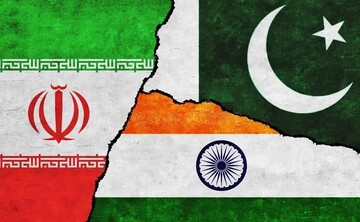 Early Times Report Early Times Report
Jammu, May 4: As diplomatic and military tensions with India intensify following the deadly Pahalgam terror attack, Pakistan has turned to Iran for support to de-escalate the crisis and avert further conflict. Iranian Foreign Minister Abbas Araghchi is scheduled to visit Pakistan on Monday, May 5, and India later in the week, signaling Tehran's active role in mediating between the two nuclear-armed neighbors.
The Pahalgam attack on April 22, which claimed 26 lives, mostly tourists, has plunged India-Pakistan relations to their lowest point in years. India has accused Pakistan of supporting cross-border terrorism, prompting New Delhi to implement stringent measures, including suspending the Indus Waters Treaty, shutting down the Attari border crossing, expelling Pakistani military attaches, and downgrading diplomatic ties. Pakistan, denying involvement in the attack, has retaliated by closing its airspace to Indian airlines and suspending trade, further escalating the standoff.
In a bid to mitigate India's response and seek diplomatic respite, Pakistan has welcomed Iran's offer to mediate. Iranian President Masoud Pezeshkian recently spoke with Pakistani Prime Minister Shehbaz Sharif, expressing Iran's willingness to facilitate dialogue to reduce tensions. "Iran and Pakistan share brotherly ties, and we are committed to fostering peace in the region," Pezeshkian said, according to a readout of the call. Pakistan's leadership has expressed hope that Iran's neutral stance and historical ties with both nations can pave the way for constructive talks.
Araghchi's upcoming visits to Islamabad and New Delhi are part of what Tehran describes as "regular consultations with neighboring countries." In Pakistan, he will meet with Prime Minister Sharif and Foreign Minister Ishaq Dar to discuss bilateral relations and regional developments, with a focus on de-escalating the India-Pakistan crisis. In India, Araghchi is expected to engage with External Affairs Minister S. Jaishankar to reiterate Iran's commitment to regional stability and explore avenues for dialogue.
"Iran stands ready to use its good offices in Islamabad and New Delhi to forge greater understanding at this difficult time," Araghchi stated last week, invoking a 13th-century Persian poem to underscore the cultural ties binding the region. While Pakistan has publicly endorsed Iran's mediation efforts, India has yet to formally respond, with analysts suggesting New Delhi may be cautious given its preference for bilateral resolutions and skepticism about external mediators.
The international community, including Saudi Arabia and the United Nations, has also called for restraint, with UN Secretary-General Antonio Guterres urging both nations to avoid actions that could lead to "tragic consequences." Experts warn that without de-escalation, the risk of miscalculation remains high, given the nuclear capabilities of both countries.
As Araghchi prepares for his diplomatic mission, all eyes are on whether Iran's intervention can bridge the deepening divide between India and Pakistan, or if the region's volatility will persist. |
